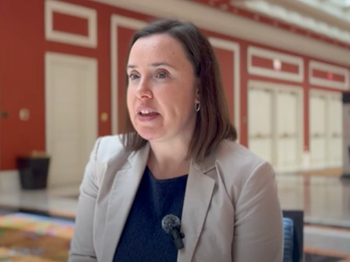In a panel moderated by Peter Wehrwein, managing editor of Managed Healthcare Executive three Washington, D.C., healthcare lobbyists with extensive D.C. experience discussed healthcare politics and policy dynamics under the Trump administration. Ryann Hill, M.P.H.; Patrick Cooney and Lindsay Greenleaf, J.D., MBA, said healthcare remains a top issue despite all the attention on immigration, tariffs and universities. Key issues include staffing cuts at HHS, with potential effects on the operations of the FDA and the Centers for Disease Control and Prevention. They also discussed the massive reconciliation bill and Medicaid changes, including work requirements and provider tax freezes, Medicare Advantage plan rate hikes and audits, and the May 12 drug pricing executive order and the implications of most-favored nation pricing.






















